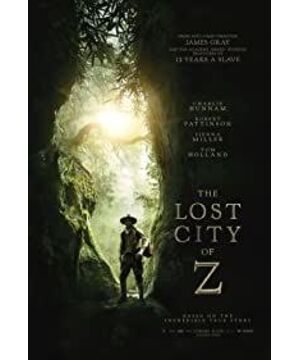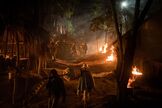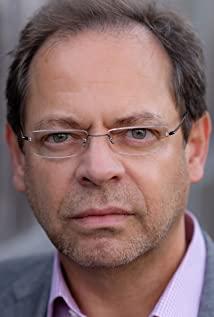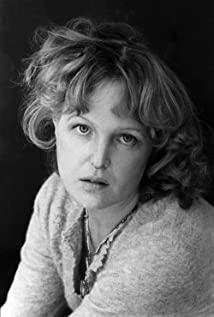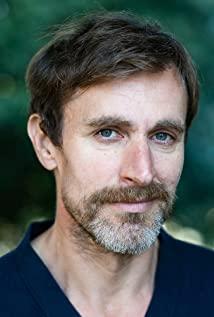The protagonist Major Foster originally intended to explore to enhance the honor of the family, but unexpectedly fell into the infinite desire for the mysterious Z city. He walked into the Amazon jungle several times, getting close to the truth each time, until the last time he disappeared into the jungle and never came back.
Rather than saying that Foster is lost in City Z, it is better to say that he is lost in ideals. City Z is like a distant temptation, making him unable to stop. From his prime to his twilight, his heart was always on the land and the ancient tribe; all his efforts in the mundane world were for the day when he could embrace the land of his dreams again.
Although Foster lives in a civilized society for the time being for his family and his country, his heart already belongs to the warm rainforest of South America. Even when he was blinded in battle, he cried out not because of his situation, but because he never had a chance to find Z City again. That moment in the movie was very touching, and I guess it was at that moment that his eldest son finally understood his father and later proposed to join him in Amazon.
This movie reminds me of "The Burning Years". Looking at the end credits, Brad Pitt seems to be the producer of the film, which makes it clear why the actor who plays Foster, Charlie Hunnam, looks so much like Brad Pitt. Although "The Lost City of Z" is thinner than "The Burning Years" in terms of story, the core they show is actually the same: they all depict modern civilization and primitive and wild under the background of the magnificent era. The beauty of the collision between civilizations.
If Tristin in "The Burning Years" shows how a person who does not succumb to any secular norms and only listens to his inner voice is self-exiled and wandering; then Foster in "The Lost City of Z" tells us how What an irrepressible ideal for a life to return to the original, natural embrace. It's like the kind of fire hidden in your blood that will burn your life one day.
Just as Tristin's best destination is in the jungle and in the process of fighting grizzly bears, Foster's best destination is in the Amazon rainforest, where the starlight and torches meet under the sky, and the land and the river meet. land. In that land, in the murmur of indigenous prayers, Foster's life was one with the Amazon. It's a pilgrim's journey home, and his soul can finally rest in peace.
"The Lost City of Z" is closer to our daily life than "The Years of Love" in a symbolic sense. People's life is always full of contradictions and concessions, and sometimes in these dodges, the whole life will pass. We were carried and walked and ran, struggling to get out. Or one day you will finally be able to decide something for yourself, but like Foster, the journey is halfway through. Of course we could say that he died before he died, but did he really have no regrets, did he not fantasize about what it would have been like if he could have set off sooner?
Foster has been compromising all his life, and there are very few moments when he does whatever he wants. For the sake of his family and his responsibilities, he had to live a secular life with restraint. He didn't have the chance to get on the road again until he was getting old. The best years were long gone; and Tristeen in "The Burning Years" is different. No matter in love and destiny, he has always "listened to the voice of the heart", but his decision has trapped Susannah in the prison of emotion all her life.
Writing this, I finally understand why I have never been able to truly forgive Tristin. Although he was suffering himself, it was his active choice; while Susannah was largely passively involved, and she struggled in panic until she died silently. Tristin fulfills her pursuit, but plunges those who love her into eternal darkness. This kind of selfishness and cruelty called "listen to your inner voice" is unacceptable to me.
I feel sorry for everyone who didn't have a choice in the story. When you lose your right to choose, you lose your freedom. In "Burning Years", that person is Susannah, and in "The Lost City of Z", that person is Foster.
"Man is born free, but everywhere he is in chains." Adults are always bound by various responsibilities and missions about others and thus become tools for the functioning of society. If he is fortunate (or unfortunate?) to be chosen by fate, he always has an uncontrollable impulse about the other side in his heart, and he will be lonelier than others. "The Lost City of Z" made me a little relieved from the brooding of "The Burning Years", let me watch from another angle, and finally had a little more understanding for those who lived up to their ideals.
The movie also reminded me of a friend of mine. She is very brave and has always been kind to others. We've gone from being a teenager to now, and in a way, she's like Foster. I recommended the movie to her and discussed it a lot with her. Those discussions led me to rewrite the second half of this review.
From the movie back to reality, I think the best wish is that we all have the right to choose. Hopefully we can choose what we really love, even if we endure the boredom and boredom for it; and hopefully when we experience pain, we can be sure that it is our own decisions, not dictated and driven.
How hard life is, I salute you.
This article was first published on the WeChat public account: Burning Expedition (TBC1096). Welcome to pay attention.
View more about The Lost City of Z reviews


